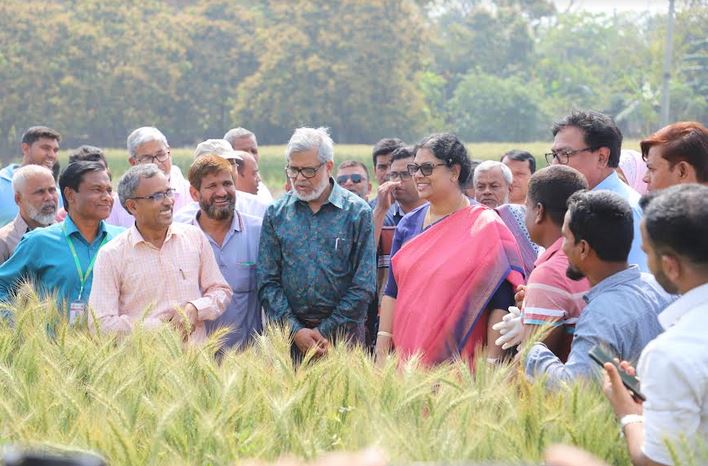
RAJSHAHI, March 4, 2023 (BSS) - Successful promotion of blast resistant wheat varieties has become indispensable to boost production of the cereal crop to feed the gradually rising population in the country.
Wheat cultivation and production will increase manifold in the region, including its vast barind tract, with the introduction of blast disease-resistant varieties of wheat.
Agricultural scientists and researchers made the observation while addressing a farmers' field day meeting titled "Blast resistant and Zink Enriched BARI GOM-33 through Climate Smart Conservation Technology" today.
Bangladesh Wheat and Maize Research Institute (BWMRI) hosted the meeting at Muraripur High School playground under Paba Upazila in the district.
Secretary to the Ministry of Agriculture Wahida Akter and BWMRI Director General Dr Golam Faruque addressed the ceremony as chief and special guests respectively with Executive Chairman of Bangladesh Agriculture Research Council Dr Sheikh Muhammad Bokhtiar in the chair.
Secretary Wahida Akter said that the government has a plan to increase the wheat area to ensure food security in parallel with rice production.
Wheat is the second most important cereal crop in Bangladesh and its demand is increasing every year in the country.
She added that the blast tolerant varieties created hope among the farmers across the country.
The production cost of the improved wheat varieties is also less as the varieties are disease and drought tolerant.
Among those, the Barigom 33 is the latest one which is blast disease resistant, zinc-enriched, large grain size and high yielding (20 maunds per bigha).
In his remarks, Dr Golam Faruque said the annual demand for wheat in the country is around 7.00 million tonnes. Around 1,250 lakh tonnes of wheat is produced in Bangladesh while the rest needs to be imported to meet the demand.
Bangladesh is the fifth most wheat importer in the world. The newly released varieties are not only early maturing and heat tolerant but also resistant to leaf blight and leaf rust diseases, said the wheat scientist.